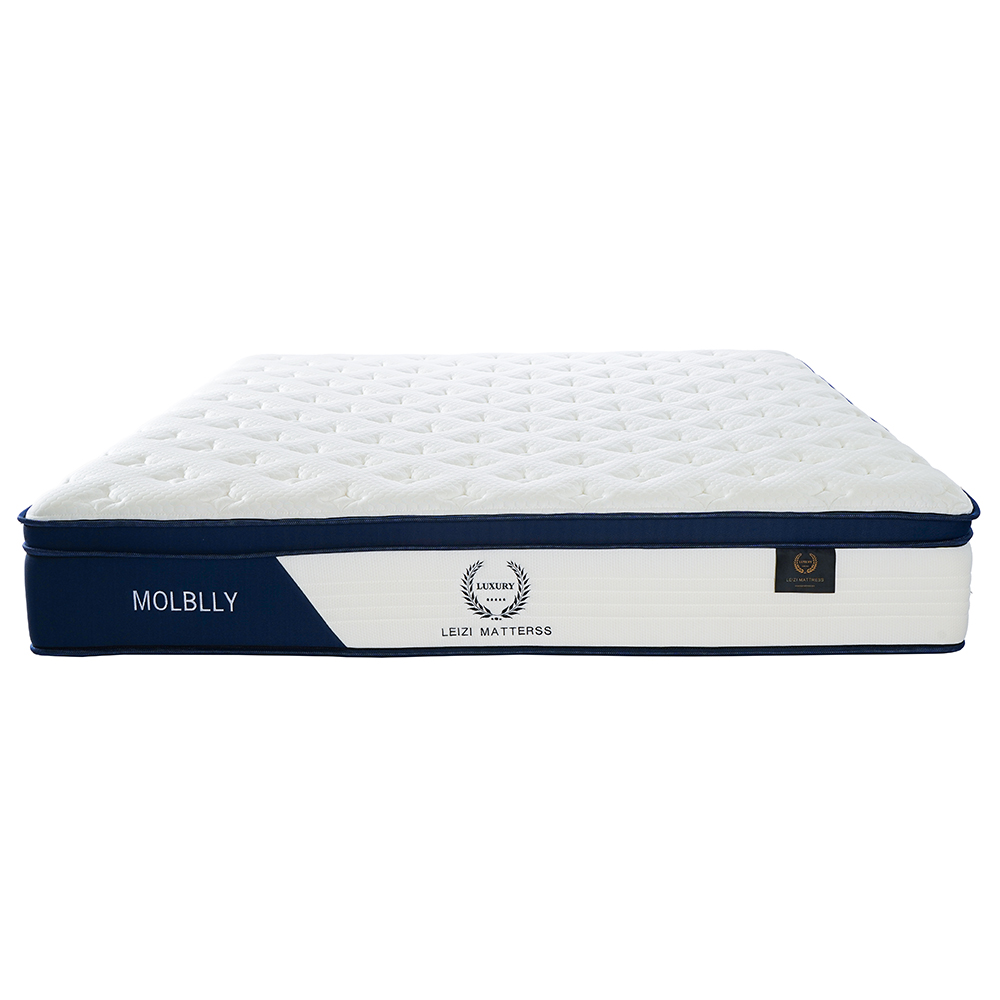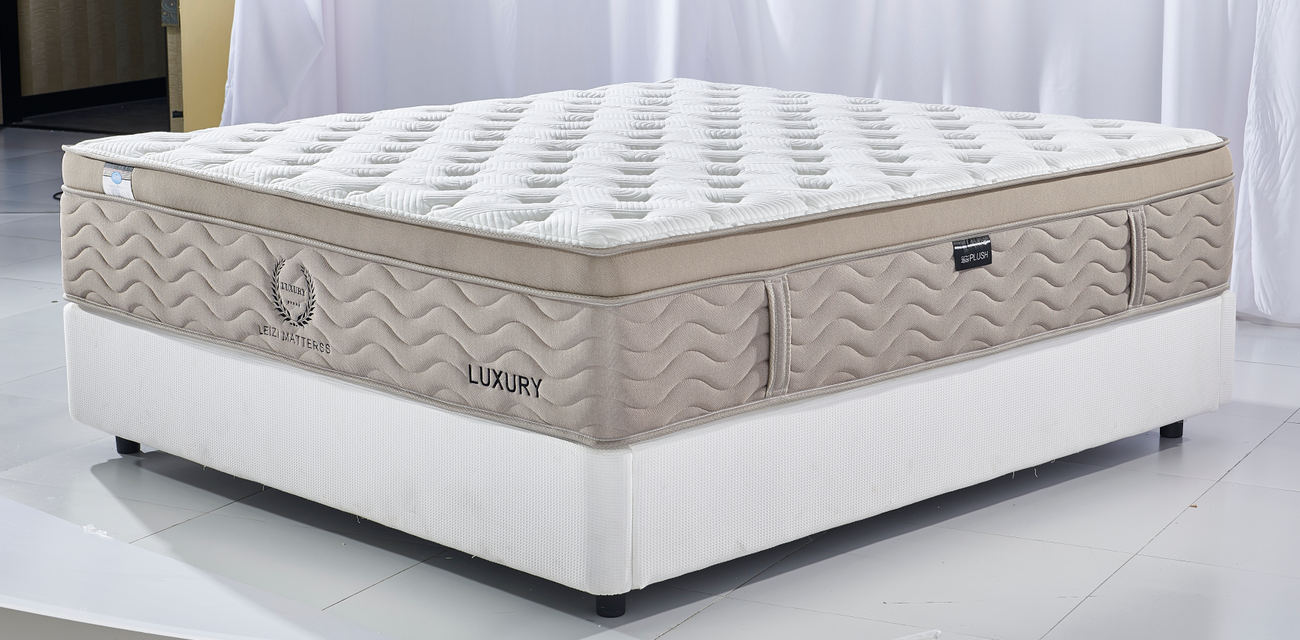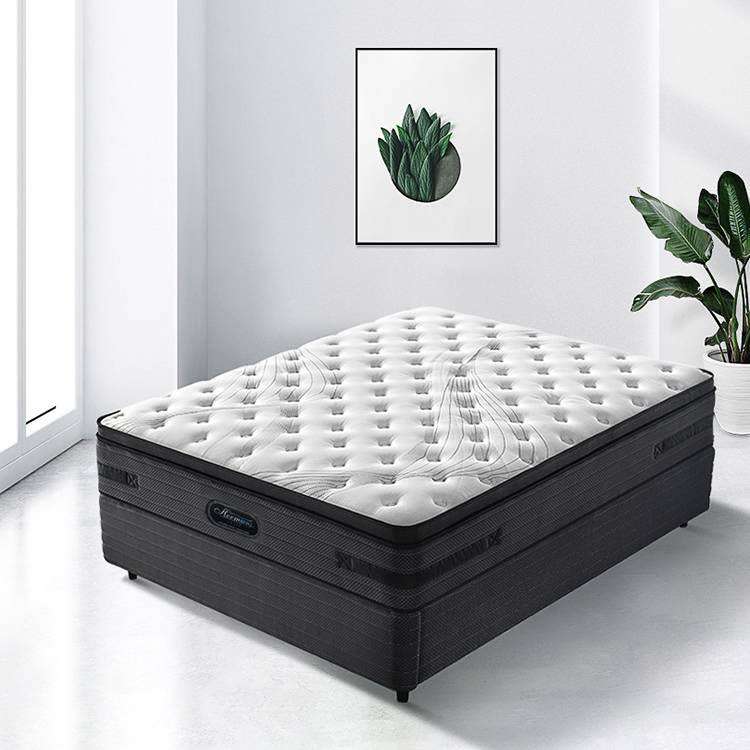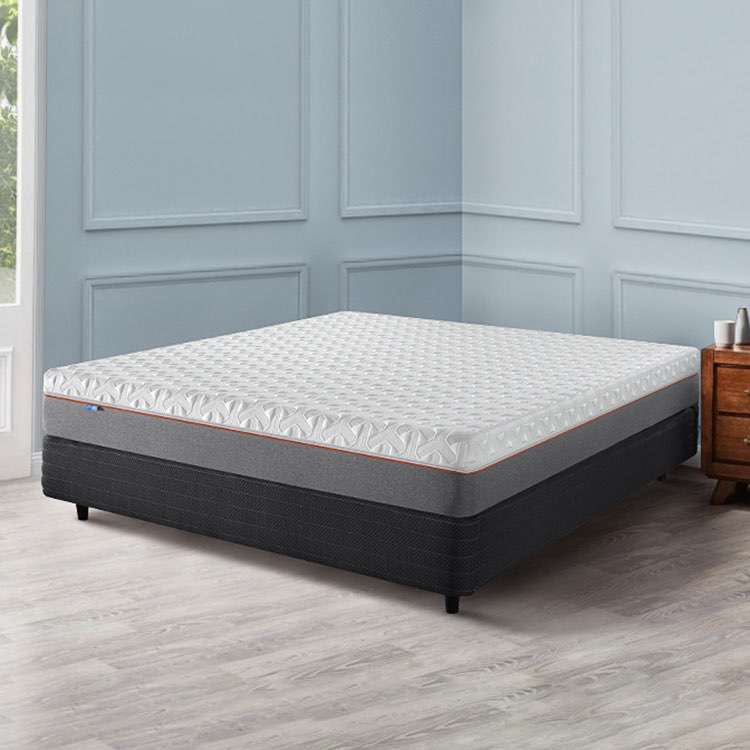Are You Better on a Firm or Soft Mattress
 Foshan LEIZI Furniture Co., Ltd
Foshan LEIZI Furniture Co., Ltd  September 19,2024
September 19,2024
Should You Choose a Firm or Soft Mattress?
What are the Advantages and Disadvantages of a Firm Mattress?
What are the Advantages and Disadvantages of a Soft Mattress?
The Difference Between Soft Mattresses and Hard Mattresses
Choosing a hard or soft mattress can have a significant impact on the quality of your sleep and overall health. The right mattress should match your sleeping position, weight, and personal comfort preferences. Knowing the differences and benefits of each type can help you make an informed decision. You can choose the LEIZI mattress, we have a full range of mattresses, no matter which type you can choose. In this article, we will delve into the differences between soft and hard mattresses, as well as the pros and cons of each. Whether you prefer a firm or soft mattress, knowing the details will help you find the best option.
What is a Soft Mattress?
Upholstered mattresses generally have a soft, padded surface. They are usually padded with layers of memory foam, latex, or cushions that sink in when you lie down. This type of mattress is especially popular with side sleepers and those who prefer to sleep in a comfortable package. When choosing between a firmer or softer mattress, it's important to know that softer mattresses provide a special kind of sleep comfort. If you are considering purchasing a new mattress, consider whether a firmer or softer mattress is right for you.
What is a Firm Mattress?
Hard mattresses, on the other hand, have a hard surface and lack softness. This type of mattress is made of denser materials that are more resistant to compression and minimize sagging. This type of mattress is usually recommended for people who sleep on their backs or stomachs and need extra support to maintain a good sleeping position. If you have a choice between a firmer and softer mattress, a firmer mattress may be better for you. If you have a choice between a firmer and softer mattress, a firmer mattress may be more desirable.

Should You Choose a Firm or Soft Mattress?
You can choose by following two factors:
Sleeping Posture
- Side Sleepers: Typically benefit from a soft mattress that can conform to the body's curves and relieve pressure on the shoulders and hips. If you're a side sleeper, a soft mattress might be the right choice in the firm or soft mattress debate.
- Back Sleepers: Often prefer a medium-firm to firm mattress to support the spine’s natural alignment. For back sleepers, choosing between a firm or soft mattress often means leaning towards the firm side for better spinal support.
- Stomach Sleepers: Usually require a firm mattress to prevent the lower back from arching unnaturally. Stomach sleepers deciding between a firm or soft mattress will likely benefit more from a firm mattress to maintain proper posture.
Weight
- Lighter Individuals (under 130 pounds): May find a soft mattress more comfortable as it allows for better contouring and pressure relief. For lighter individuals, a soft mattress might be the better option in the firm or soft mattress comparison.
- Average Weight Individuals (130-230 pounds): Can opt for a medium-firm mattress that balances comfort and support. For those of average weight, the firm or soft mattress choice depends on personal comfort preferences.
- Heavier Individuals (over 230 pounds): Often need the extra support of a firm mattress to prevent sagging and ensure proper spinal alignment. Heavier individuals typically find that a firm mattress is the better choice when deciding between a firm or soft mattress.
What are the Advantages and Disadvantages of a Firm Mattress?
Advantages
- Increased Durability: Firm mattresses tend to maintain their shape and support longer than softer ones. The dense materials used in firm mattresses are less prone to wear and tear, ensuring they last for years without sagging or losing their supportive qualities. If you're considering a firm or soft mattress, durability is a crucial factor.
- Stable Sleeping Position: There's less sinkage, so you don’t have to adjust your position frequently. This stability helps in maintaining a consistent sleeping posture throughout the night, which can contribute to a more restful sleep. If you’re debating between a firm or soft mattress, stability can be a significant advantage of a firm mattress.
- Undisturbed Sleep: Movement on one side of the bed is less likely to disturb your partner. Firm mattresses tend to have better motion isolation, meaning that if one partner moves or gets up, the other is less likely to feel it. For couples considering a firm or soft mattress, a firm mattress can provide a more undisturbed sleep.
Disadvantages
- Lack of Relief for Pressure Points: Firm mattresses may not offer adequate cushioning for pressure points, causing discomfort. For side sleepers, in particular, this can lead to sore shoulders and hips due to the lack of contouring. When considering a firm or soft mattress, this can be a downside for a firm mattress.
- Not Ideal for Side Sleepers or Lightweight Individuals: Those who weigh less than 130 pounds or sleep on their side might not get enough cushioning. This can lead to a less comfortable sleep experience and increased pressure on certain body parts. Lightweight individuals should consider whether a firm or soft mattress is more suitable for them.
What are the Advantages and Disadvantages of a Soft Mattress?
Advantages
- Fit Pressure Points: Soft mattresses are excellent at relieving pressure points, making them ideal for side sleepers. The plush surface cradles the body, reducing stress on joints and promoting a more comfortable sleep. In the firm or soft mattress choice, a soft mattress wins for pressure relief.
- Comfort for Recovery: Helpful for those recovering from injuries as they provide gentle support and cushioning. A soft mattress can help in reducing pain and discomfort, aiding in faster recovery. For those recovering from injuries, the firm or soft mattress question often leans towards soft.
- Cozy Feel: Offers a plush, comforting feel that many people find appealing. The luxurious softness of these mattresses can create a warm and inviting sleep environment.
Disadvantages
- Difficulty Changing Positions: The deep contouring can make it harder to move or change positions during sleep.
- Lack of Support for Heavy Individuals: Heavier sleepers might not get the necessary support, leading to improper spinal alignment. This lack of support can result in back pain and discomfort over time. In the firm or soft mattress debate, heavy individuals may need to opt for a firmer option.

The Difference Between Soft Mattresses and Hard Mattresses
Comfort
Soft mattresses are soft and enveloping for those who prefer a fluffy, soft sleep experience. Firmer mattresses are more stable and suitable for supporting the spine. Choosing a firm or soft mattress can have a big impact on sleep comfort.
Body Support
A firm mattress supports the body, prevents sagging and keeps the spine flat. Soft mattresses are flexible and help relieve pressure, but may not provide enough support for some people. Consider your support needs when choosing between a firm or soft mattress.
User Design
Soft mattresses are for people who need comfort and pressure distribution. Firmer mattresses are for people who need more support and stability. Firm and soft mattresses are constructed to be used according to the user's preference.
Temperature Control
Firmer mattresses allow for better air circulation and a cooler sleep. Softer mattresses, especially those with memory foam, retain more heat and feel warmer. Temperature regulation is an important factor when choosing a soft or firm mattress.
Life
Firmer mattresses are made of denser materials and last longer because they are less likely to sink. Softer mattresses are made of more padding and therefore sink faster. The firmness of hard and soft mattresses affects how long they last.
Conclusion
To determine whether a firmer or softer mattress is right for you, you need to consider your sleeping position, weight, and personal sleep preferences. There are pros and cons to both types of mattresses. Ultimately, the soft or firm mattress that's best for you is the one that offers a good balance of comfort and support for a restful, rejuvenating night's sleep. Choose wisely to improve your sleep quality and overall health. Choosing a firm or soft mattress depends on your needs and preferences.
FAQ
Q: Is a firm or soft mattress better for side sleepers?
A: A soft mattress is generally better for side sleepers because it can conform to the body's curves, providing pressure relief on the shoulders and hips. This helps in reducing discomfort and promoting a more restful sleep for those who sleep on their side.
Q: Should lighter or heavier individuals choose a firm or soft mattress?
A: Lighter individuals (under 130 pounds) often find a soft mattress more comfortable as it allows for better contouring and pressure relief. Heavier individuals (over 230 pounds) usually need the extra support of a firm mattress to prevent sagging and ensure proper spinal alignment. Average weight individuals (130-230 pounds) can opt for a medium-firm mattress that balances comfort and support.
Q: What benefits does a firm mattress offer?
A: A firm mattress offers increased durability, maintaining its shape and support longer than a soft mattress. It provides a stable sleeping position with less sinkage, which helps maintain consistent posture throughout the night. Additionally, firm mattresses often have better motion isolation, making them a good choice for couples as movement on one side of the bed is less likely to disturb the other partner.












